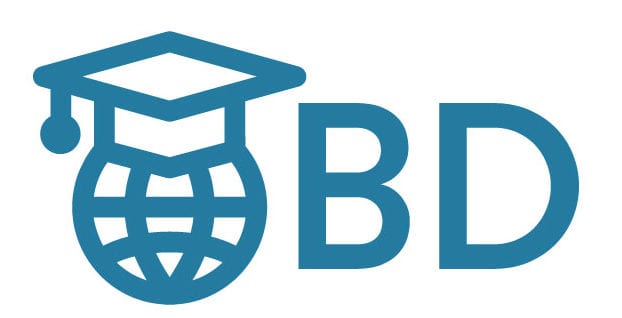In pursuit of a better life commonly referred to as the “American dream,” many non-Americans stay in the United States despite not being able to adhere to all immigration laws and requirements.
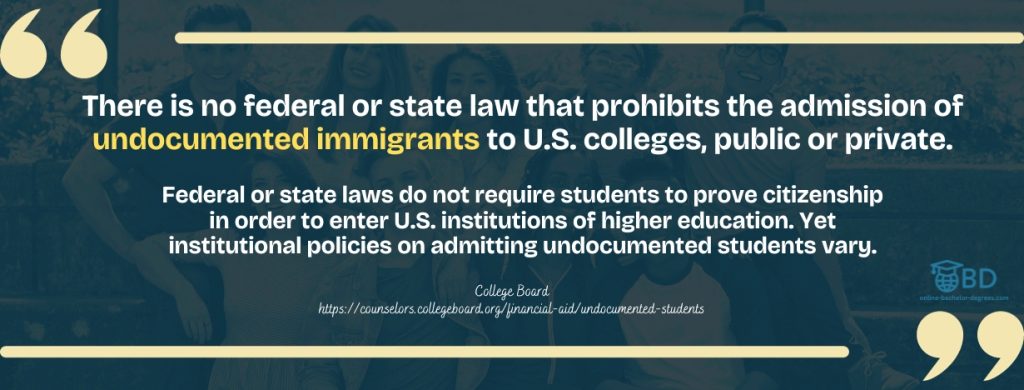
Today, the United States has over 408,000 undocumented students in higher education. Currently, 24 states accept and provide in-state tuition to undocumented students. All thanks to the US’ legacy of international students contributing to the academic, economic, and social life of higher education communities.
Every state has its policies when it comes to supporting the educational needs of undocumented residents. This ensures that all students, regardless of residency status, can access quality education and federal student aid.
Unique Challenges That Undocumented Students Face
Every person has a right to education. This is why many schools in America support undocumented students, including young Deferred Action for Childhood Arrivals recipients, who were brought to the country as children from deportation. However, it has been reported that undocumented students face unique challenges as a result of their legal status.
One of the biggest concerns undocumented students encounter as they pursue a college education is having limited opportunities. Illegal residents lack financial, legal, psychological, and social support. This can mean that undocumented students need to work harder to achieve their goals.
Financial Limitations
A lot of undocumented students do not consider pursuing a bachelor’s degree after graduating from high school because of their limitations, especially when it comes to finances.
Since college education is quite expensive, students with illegal status need to take on several jobs to fund their degree. However, they have limited job opportunities because of their status.
It can also be difficult for them to apply for financial aid. The IIRIRA of 1996 or Illegal Immigration Reform and Immigrant Responsibility Act and the Personal Responsibility and Work Opportunity Reconciliation Act (PRWORA) state that undocumented immigrants are not qualified for in-state or state financial aid. These laws make it significantly harder for them to continue or complete their education.
Discrimination
Some illegal residents do not disclose their immigration status because they are afraid they might be deported. The problem with this is that schools are unable to identify them and provide them with the assistance and support they need.
Limited Access to Colleges
Access to higher education institutions is another major issue that students with illegal status have. There needs to be state laws that allow admitting undocumented students to colleges and universities before they can be eligible for any support.
These are just some of the obstacles that undocumented students need to conquer to be able to pursue a bachelor’s degree. This is why they need to make several considerations when choosing a school, including state policies regarding financial aid, which can affect the total cost of tuition.
Colleges That Support Undocumented Students
University of North Georgia

Dahlonega, Georgia
DACA recipients and undocumented students are accepted into the University of North Georgia. This university offers many online degree programs at affordable out-of-state tuition rates. These include online Associate of Arts/Science degrees with pathways related to Criminal Justice, Healthcare Services and informatics, and Sociology.
At UNG, DACA recipients and undocumented students can apply for the Dual Enrollment Program that allows them to take free college courses while still in high school. At the end of the program, students will graduate with an associate degree.
Undocumented students can also take AP courses while in high school. Once they pass the AP exam, they can be eligible for college credit, depending on the minimum score that an institution requires for student applicants.
In the state of Georgia, DACA and undocumented students may apply for scholarships. These include the UNG Goizueta Scholarship and the Hispanic Scholarship Fund.
Colorado State University
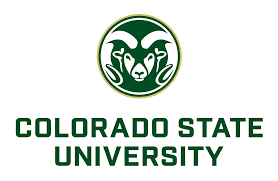
Fort Collins, Colorado
Because of Colorado State University’s commitment to providing education to anyone seeking to earn a degree, it welcomes all students, regardless of citizenship status. Students with illegal status can expect to be treated the same way as domestic students in the admission process.
Students can also rest assured that their immigration status is safe and is not a matter of public record. Aside from that, they can qualify for in-state tuition classification through the university’s Advancing Students for a Stronger Tomorrow (ASSET) program, allowing undocumented and DACA students to enjoy the same in-state tuition rates as regular citizens. They can also be eligible for institutional grants and scholarships.
North Central College

Naperville, Illinois
North Central College welcomes undocumented students to earn a bachelor’s degree. Being a partner college of TheDream.US, the largest college access and success program in the country for undocumented students, undocumented students and DACA recipients are able to apply for scholarship funds through the program.
Students enrolled at NCC can apply for financial assistance through private grants and scholarships. They can file for the Alternative Application for Illinois Financial Aid through the Illinois Student Assistance Commission (ISAC) website. On top of that, they are eligible for merit scholarships earned during the application process.
South Seattle College

Seattle, Washington
South Seattle College ensures a safe and welcoming space for all students. It offers in-state tuition rates and state financial aid to undocumented and DACA students, given that they have lived in Washington for at least 36 months prior to earning a high school diploma or GED.
To be admitted to South Seattle College, undocumented students must also graduate from a Washington high school or earn a GED or High School 21+. They also continuously live in the state after having graduated from high school or until admitted to college.
Thanks to the REAL Hope Act (SB 6523), non-citizens can be eligible for the Washington College Grant and qualify for in-state tuition, given that they meet other eligibility requirements. Aside from that, they can also apply for other programs, including the Opportunity Grant and Emergency Funds, as well as financial assistance from private and non-profit organizations.
Highline College

Des Moines, Washington
All students, regardless of their citizenship and immigration status, may qualify for in-state tuition rates through the Residency Affidavit. They need to have a high school diploma, GED, or diploma equivalent. They must also be a resident of Washington for at least one year prior to their admission to Highline College.
While undocumented students are not eligible for federal student aid, they can, however, apply for the Washington College Grant, which is offered to low-income, non-citizen students. Eligible students must complete the Washington Application for State Financial Aid (WASFA).
Seattle Central College

Seattle, Washington
Seattle Central College believes that every student should have access to higher education, including those without a US visa. The school recognizes the essential contributions that undocumented students make to its campus, community, and the nation.
As proof of this, Seattle Central College offers state-resident tuition rates to students with no citizenship or immigrant status. They may also apply for state financial aid if they have a high school diploma, GED, or diploma equivalent. They must also be a primary resident of Washington for the last 12 consecutive months before their college application. Student applicants must also sign an affidavit that says they meet the requirements.
Seattle Central College formed the Dreamers Taskforce in 2015 to support undocumented students. Its name was then changed to Undocumented Students Support Team in 2018. Some of the task force’s responsibilities include information sharing, professional development and training, and more.
The State University of New York
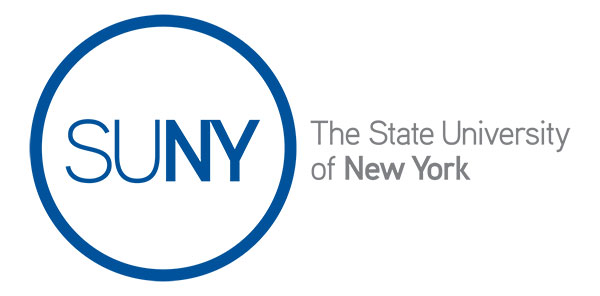
Albany, New York
The State University of New York accepts all students, irrespective of their national origin or immigration status. This academic institution understands the students’ situation and respects their perspective and worldview. Moreover, the school guarantees a safe and supportive environment for everyone in its 64 campuses.
Undocumented students and DACA recipients are given access to state-administered grants and scholarships thanks to the NYS DREAM Act, a law passed by Senator Jose Peralta. They can be eligible for financial aid if they graduated from an NYS high school or attended an approved NYS high school equivalency program.
Undocumented students may be eligible for resident tuition rate if they have attended an approved NYS high school for a minimum of two years, graduated from an approved NYS high school, and applied for college admission within five years of earning a diploma. Those who have attended an approved NYS program for an equivalency program and have applied for admission within five years after receiving their GED may also apply.
Students who are non-citizens may also apply for other scholarships, including TheDream.US Scholarship, MALDEF Scholarship, SUNY Campus Scholarships, and Golden Door Scholars.
American University
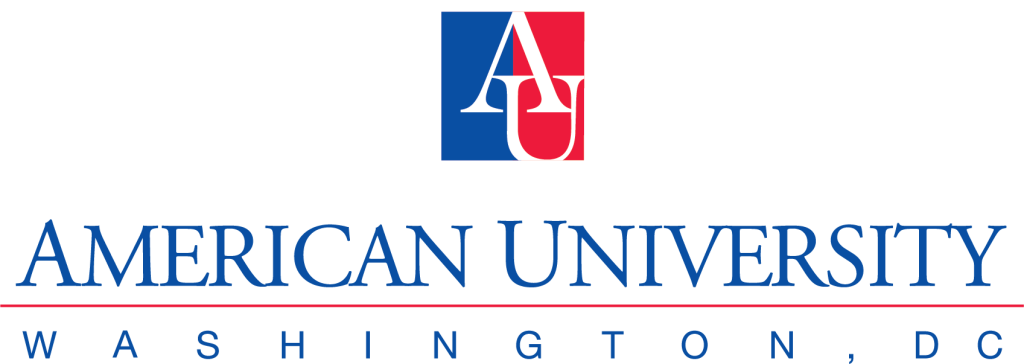
Massachusetts Ave NW, Washington, DC
The American University joined other university and college presidents in advocating for the Deferred Action for Childhood Arrivals (DACA) program for undocumented immigrant students. Because of this, AU is committed to providing information on applications for college admission and financial assistance to prospective non-citizen students.
AU also reassures students without status that they will not be asked to provide any proof of their immigrant status. The university may only be required by the Department of Education to verify and report a student’s immigration status if they apply for needs-based financial assistance.
To ensure that admitted students will be able to focus on earning a degree and not worry about their immigrant status, the university guarantees that the campus police will not hold or question students on the basis of their immigration alone. The university will not also participate in any joint operation by immigration and other law enforcement officials unless required by law.
Student applicants without legal immigration status may be eligible for merit-based aid just like other students. They may also apply for scholarship funds that are offered based on academic merit. The AU Honors Program also applies to eligible students even without status.
Contra Costa College

San Pablo, California
Contra Costa College is committed to providing all students with a safe environment, regardless of their immigrant status. Applicants may send an email to the school’s Undocumented Student Program Coordinator or schedule an in-person or virtual appointment to be connected with the college’s Dream Alliance.
At CCC, undocumented students may be eligible for financial aid. For one, they can apply for CCC Foundation Scholarships. They can also apply for the CA Dream Act, a package of laws allowing children without proper visa/immigration documentation to pursue higher education and contribute to the country’s well-being. Other financial assistance programs undocumented students can apply for include the California Promise Grant and Cal Grant Programs.
Aside from wellness resources, CCC also has a food pantry and food bank services, giving students access to both canned and packaged foods. What’s more, students can take advantage of the school’s Transfer Center and Career Services Center to ensure they accomplish their goals.
Illinois State University

Normal, Illinois
Illinois State University is committed to welcoming all student applicants regardless of their citizenship status. Undocumented students, whether they are with or without DACA, who apply to Illinois State are treated the same way as permanent residents. This also means that they are required to follow the same application process as everyone else.
As proof of the university’s commitment to supporting students without status in attaining a college degree, the school offers other resources to help students fund their education. Undocumented students can apply for merit-based scholarships, departmental scholarships, and off-campus scholarships, such as TheDream.US Scholarship and Golden Door Scholars.
Undocumented students may also apply for eligibility for the Retention of Illinois Students & Equity (RISE) Act to be awarded grants. Those who are eligible may also apply for loans from a bank or any private lender as long as they have a US citizen to co-sign the agreement. Student applicants with a work permit may also apply for an on-campus job at Illinois State.
If the students with no legal immigrant status meet specific criteria, they are eligible to pay the in-state tuition rate. All they need to do is complete an affidavit.
De Anza College

Cupertino, California
De Anza College is dedicated to treating all students with respect and equity, regardless of their immigration status. In fact, the school has joined Foothill college presidents in ensuring undocumented students are eligible to attend both colleges.
De Anza College offers a Higher Education for AB 540 Students (HEFAS) program for undocumented, low-income, or AB 540 students that provides free services, creates a safe space for learning, and reduces financial stress. They may also pply for financial aid or scholarships through the California Dream Act, allowing them to receive state financial aid.
This academic institution has a Mental Health and Wellness Center to assist those who are stressed and in need of someone to talk to. For legal assistance, students are referred to the Immigrant Legal Resource Center.
Northern Illinois University
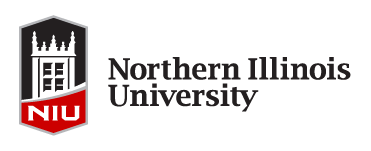
DeKalb, Illinois
Northern Illinois University is committed to being a community of diverse people and to providing access for all in a respectful manner.
Undocumented students who are enrolled at NIU may apply for financial assistance through the Alternative Application for Illinois Financial Aid, as well as other scholarships and grants. The Huskie Pledge Grant is for students who are graduating from an Illinois high school with a minimum overall GPA of 3.0. Eligible students will not have to pay their tuition and other fees for the first year at NIU and possibly beyond.
Other scholarships at NIU include:
- DREAM Action NIU
- NIU DREAM Scholarship
- PROMISE Scholarship
- Robert Marcelin Memorial Scholarship
- Center for Latino and Latin American Students (CLLAS) Undergraduate Scholarship
University of Washington
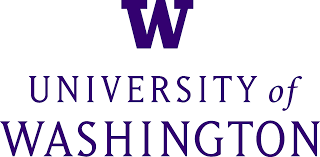
Seattle, Washington
The University of Washington wholeheartedly welcomes and supports undocumented students and invites them to explore the opportunities, resources, and services offered to them through the Leadership Without Borders (LWB) Center.
The LWB Center offers services, including Husky Dream Lending Library, leadership workshops and resources, community building and connections, and access to College Success Foundation Navigators.
Non-residents are not qualified for in-state tuition rates but may apply for private scholarships or personal financial resources. For one, they can apply for the Purple & Gold Scholarship, which is awarded to permanent residents, undocumented residents, and refugees who are not residents of the state of Washington.
Students may also apply for private scholarships, including the following:
- College Board
- Ready Set Grad
- Pacific Northwest Scholarship Guide
- Mexican American Legal Defense & Educational Fund
Oglethorpe University
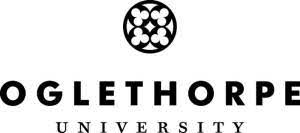
Atlanta, Georgia
Oglethorpe University has always been welcoming of students who are eager to make a difference in their lives, thanks to the school’s partnership with TheDream.US. This means that immigrants of all immigration statuses have access to quality college education. What’s more, the university is also committed to safeguarding the students’ privacy and safety.
Eligible applicants may apply for TheDream.US scholarship program. They are also encouraged to attend a session of Global Education’s Scholarship Advising if they want to apply for individual scholarships that do not require proof of legal permanent residency.
Students can make a virtual appointment through Handshake with Career Development to get access to information on internships and jobs for students of different immigration statuses. Plus, they can take advantage of the school’s Counseling Center.
Valencia College

Orlando, Florida
At Valencia College, students of all immigration statuses are welcome to apply for admission. They can contact the school’s Student Services Center for questions about assessment, transcripts, residency, and application.
Undocumented students who want to qualify for an in-state tuition rate may apply for an out-of-state tuition waiver if they have attended a high school in Florida for the last three consecutive years and submit their official transcript as proof of attendance. They must also submit an admission application to a State University System or Florida College System institution within two years of graduating from high school.
Students without status may apply for one or more of the Valencia College Foundation’s 400 scholarships to reduce the cost of their tuition and fees. Aside from that, they can apply for other scholarship opportunities, including:
Skagit Valley College

Mount Vernon, Washington
Oak Harbor, Washington
Skagit Valley College ensures a safe and welcoming environment for all students, including those with no legal immigration status.
In its commitment to supporting undocumented students, Skagit Valley College ensures students that their school files will not be withheld or provided to any outside agency. College staff is also discouraged from inquiring about the students’ immigration statuses unless it is important to the student’s educational goals or it is a requirement to be used to evaluate educational opportunities.
Since students without legal citizenship statuses are not eligible for federal financial aid, they are encouraged to apply for local and state-wide scholarships, including:
- Washington Application for State Financial Aid (WASFA)
- Skagit Valley College Foundation Scholarships
- DREAMer’s RoadMap
- TheDream.US
University of Connecticut

Storrs, Connecticut
The University of Connecticut encourages all students who are eager to take the next step in reaching their academic goals to apply for admission, regardless of immigration status. Applicants will be evaluated based on their class rank, grade point average, required essay, SAT or ACT score, extracurricular activities, and recommendation letters.
Undocumented students who are residents of Connecticut may be eligible for in-state tuition at public higher education institutions in the state. All they need to do is to complete the Status Acknowledgment Form to prove they are a resident of Connecticut, have attended at least two years of high school in the state, and have graduated or received an equivalent of a high school diploma.
Students with no legal immigrant status but are residents of Connecticut may be eligible for institutional needs-based aid, given that they are enrolled full-time into a degree-granting program at the university and compliant with the Satisfactory Academic Progress or SAP Policy. They may also apply for undocumented student-friendly scholarships, including:
- Jack Cooke Foundation Undergraduate Transfer Scholarships
- Gen and Kelly Tanabe Scholarship
- Lamber-Goodnow Injury Law Team Education Scholarships
- U.S. Naval Institute’s General Prize Essay Contest
Northern Arizona University
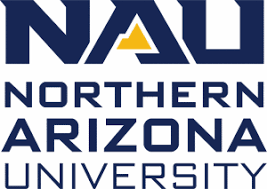
Flagstaff, Arizona
Undocumented students who dream of earning a college degree in Arizona can apply for admission at Northern Arizona University.
Non-citizen high school graduates looking to pursue a college education in the state can qualify for in-state tuition at university and community colleges in Arizona, including Northern Arizona University. Undocumented students may also apply for eligibility for state-funded financial aid like the Access2Excellence (A2E).
To qualify for state financial aid, students must have graduated from a public or private high school option or homeschool equivalent in the state or have obtained a high equivalency diploma, i.e., GED. They must also attend a public or private high school or homeschool equivalent while physically present in Arizona for the last two years.
DACA recipients and undocumented students may also apply for other scholarships, including:
- Chicanos Por La Causa
- The Isaac Amaya Foundation
- Scholarship America
- Arizona Community Foundation
- Immigrants Rising Undergraduate Scholarships
University of Michigan
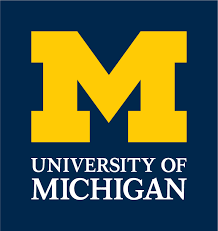
Ann Arbor, Michigan
To apply for college admission to the University of Michigan, undocumented students need to complete the common application. They may also apply for eligibility for needs-based grant funding.
To qualify for in-state tuition, students should have attended and graduated from a Michigan high school within the last 40 months. They can also apply for private scholarships to fund their college education. These include:
- Golden Door Scholars
- Hispanic Scholarship Fund
- Immigrants Rising
- PRSA Foundation Scholarships
- BMI Student Composer Award
At U-M, students can rest assured of a safe and supportive environment, regardless of their situation. The university has an Office of Academic Multicultural Initiatives (OAMI) that was built to help students succeed and attain their professional and personal goals. Students can take advantage of various student support services, including career advice, counseling and psychological services, and more.
Pennsylvania State University

University Park, Pennsylvania
Students without any legal documentation may enroll at The Pennsylvania State University. They must apply through the Common App to provide information on their citizenship status.
DACA recipients or undocumented students may be eligible for in-state tuition if they meet the residency requirements, including attendance at an accredited high school for at least four years and a high school diploma from an accredited high school or a GED certificate.
Students without status can take advantage of the student care services offered by Penn State University, including basic needs and support, health and wellness concerns, academic concerns, and more. Undocumented students are not eligible for federal financial assistance. They can, however, apply for external scholarships from professional associations, religious organizations, private foundations, employers, and local chambers of commerce.
Additional Resources:
